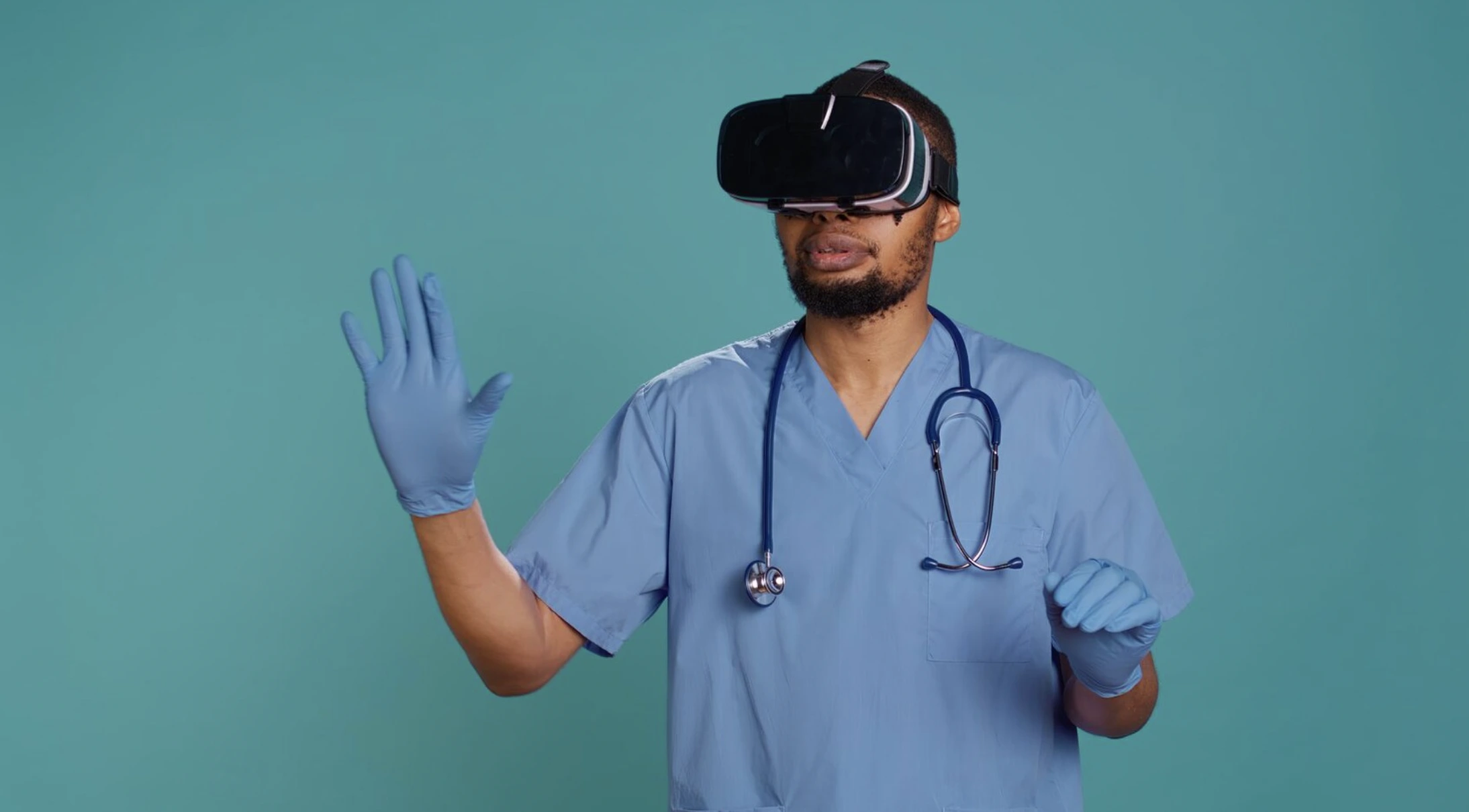
Image by DC Studio, from Freepik
UNCG Integrates AI and VR Into Nursing Education
In a Rush? Here are the Quick Facts!
- VR simulations allow students to practice real-world clinical scenarios in a controlled setting.
- MetaQuest2 headsets with Oxford Medical Simulation software support the immersive VR program.
- Students can collaborate in small groups, sharing screens and making real-time decisions.
The School of Nursing (SON) at the University of North Carolina Greensboro (UNCG) announced that it is using AI to enhance nursing education, patient care, and practice by offering immersive learning experiences through virtual tools.
This approach integrates real-world clinical scenarios, allowing students to practice skills and make decisions independently in a controlled, virtual setting. The SON’s program includes virtual reality (VR) simulations that bring theoretical knowledge directly into practical application.
“We can talk about a health condition in class and then put on virtual-reality headsets to practice taking care of a patient,” explains Lindsay Draper, clinical associate professor at SON.
“Right then and there, they’re able to connect theory with clinical practice before they ever get to a clinical setting,” she added, as reported in the university press release.
Implemented in 2023, the VR program supports both undergraduate and nurse practitioner students, utilizing MetaQuest2 headsets with Oxford Medical Simulation software.
This platform offers access to more than 230 scenarios, including the option to create tailored cases. This flexibility allows students to learn critical skills, such as assessing patients, ordering labs, and developing patient interactions, in a realistic yet risk-free environment.
The press release states that the VR experience has proven beneficial for collaborative learning as well. Students can work in small groups, share screens, and discuss real-time decision-making, maximizing engagement and reducing downtime in simulation sessions.
The SON has extended AI use to course design, curriculum improvement, and assignment generation. Faculty leverage AI to develop curriculum rubrics and streamline assignments, while students use it in courses like Nursing Informatics and Technology to create study resources, and test questions.
Moving forward, UNCG’s SON aims to incorporate augmented reality and explore VR’s potential for interprofessional training and disaster preparedness.
The integration of AI also influences faculty productivity and informs health policy, with Dean Debra Barksdale leading initiatives in national organizations to shape ethical AI applications in nursing.
As AI continues to transform health education, SON faculty are sharing these advancements with broader communities and preparing the next generation of healthcare professionals.
Notably, studies show immersive VR training boosts nursing students’ performance, with one study finding that VR-trained students made significantly fewer errors compared to those using traditional clinical training.
Another study demonstrated that medical students who used VR alongside classical training made 40% fewer errors in simulated Arterial Blood Gas collection, underscoring VR’s potential to reduce clinical errors and improve medical education.
However, other studies highlight some limitations of VR in medical training. First, the transfer of skills from VR to clinical practice needs further evaluation. Second, VR procedures, especially those involving surgery, require careful and complex software design. Finally, the ability of VR to fully simulate real-life environments warrants ongoing review.


 Previous Story
Previous Story

 Latest articles
Latest articles 

Leave a Comment
Cancel